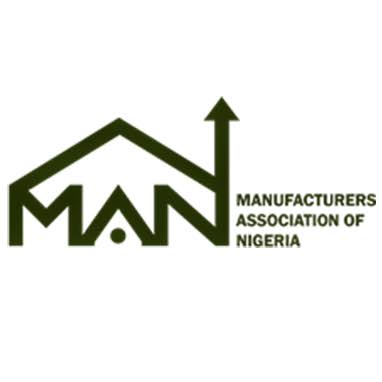Key players in Nigeria’s manufacturing industry have renewed calls for decisive government action to unlock the country’s production potential, stressing that economic revival is impossible without strong policy frameworks, legal backing for local content, and infrastructure development. This call was echoed during the BusinessDay Manufacturing Conference held in Lagos under the theme: “Unlocking Nigeria’s Manufacturing Potential: Strategies for Sustainable Growth Amid Economic Turbulence.”
The conference brought together top executives, policy experts, and industry stakeholders to discuss the current challenges confronting the sector and offer long-term solutions. Chief among the recommendations was the urgent need for the Federal Government to formally enact the ‘Nigeria First’ policy into law, mandating the patronage of locally produced goods by all public institutions and encouraging private sector compliance.
Director-General of the Manufacturers Association of Nigeria (MAN), Segun Ajayi-Kadir, said that while the “Nigeria First” policy exists in principle, its impact will remain minimal without legal backing. He argued that only a gazetted law with enforcement mechanisms will compel ministries, departments, and agencies to prioritize made-in-Nigeria products. He further insisted that CEOs and heads of public institutions who violate the policy should face sanctions.
“Directives alone are not enough. We need legal consequences. We also need incentives that drive backward integration and promote local value chains,” he said. Ajayi-Kadir also blamed the rising volume of unsold goods on reduced consumer purchasing power caused by inflation, high interest rates, and poor infrastructure. According to him, “As disposable incomes fall, consumers opt for cheaper imported alternatives—often substandard—hurting local producers.”
Odiri Erewa-Meggison, External Affairs Director of British American Tobacco (BAT) West and Central Africa, added that for Nigeria’s industrial sector to compete globally, government policies must promote sustainability, human capital development, and a stable domestic market. “We must ensure Nigerian products are globally competitive and contribute to FX generation,” she said.
Other stakeholders agreed that the manufacturing sector remains vital to Nigeria’s economic diversification, job creation, and export revenue generation but remains hampered by structural and policy issues. Chief among these are inadequate infrastructure, erratic power supply, insecurity, smuggling, and policy inconsistency.
George Onafowokan, CEO of Coleman Technical Industries Limited, noted that 30 per cent of production costs go into buying diesel, a burden that manufacturers in more developed economies do not face. “Without a fix to the electricity crisis, Nigerian manufacturers cannot compete globally. It’s that simple,” he said.
While some stakeholders acknowledged the influx of foreign investors into Nigeria’s manufacturing space, despite challenges, they urged local businesses to look inward and harness untapped opportunities. “Foreign investors are seeing potential here that local firms are ignoring,” said Adetunji Aderinto, founder of Zetamind Consulting Limited. He urged manufacturers to embrace digital tools and data to cut costs and improve efficiency.
Dr Chinyere Almona, Director-General of the Lagos Chamber of Commerce and Industry (LCCI), criticized inconsistent government policies, citing the proposed 4% import levy by Customs in Q1 2025. “You can’t plan with arbitrary rules. What we need is a Manufacturing Policy Council that brings together all stakeholders before policies are rolled out,” she said.
The lack of understanding around regional trade agreements like the African Continental Free Trade Area (AfCFTA) was also highlighted. According to Olusola Obadimu, DG of the Nigerian Association of Chambers of Commerce, Industry, Mines and Agriculture (NACCIMA), only 12% of SMEs understand the AfCFTA’s operational protocols. He urged the Federal Government and the Central Bank of Nigeria (CBN) to prioritize inflation control, adding that state governments must also stop focusing solely on Internally Generated Revenue (IGR) and start addressing real developmental needs.
A recurring theme among the panelists was the need for a legally-backed public-private dialogue platform, not just as a form of consultation, but as a permanent structure to ensure that manufacturers are not blindsided by sudden or disruptive policy shifts. The consensus was clear: policy announcements without legal force and stakeholder engagement will not drive industrial growth.
As Nigeria battles inflation, currency instability, and supply chain disruptions, stakeholders believe that a well-supported manufacturing base could offer a buffer against external shocks. However, without clear, enforceable laws supporting local production, manufacturers fear the sector will continue to underperform, despite its potential.
The conversation at the BusinessDay Conference served as a wake-up call to policymakers: if Nigeria truly seeks to diversify its economy and reduce import dependency, binding legislation, policy consistency, and infrastructure upgrades are no longer optional—they are urgent necessities.
